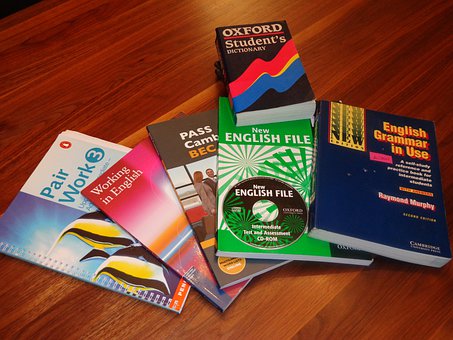English is one of those languages that is spoken globally. However, it is crucial to have a grasp of your speaking skills. It is common for people to have excellent writing skills in English, but when it comes to speaking English, they need help to speak fluently. Don’t worry. You are not alone.

Suppose you are trying to learn to speak English fluently but have yet to progress. Don’t fret. We have listed the top 11 practical tips that will help you become fluent in speaking English quickly!
If you are on the go and need a quick overview of our 15 practical tips, look below!
- Start speaking English frequently.
- Focus more on learning phrases, not words
- Plan your conversations ahead
- Don’t stress about English grammar
- Work on your pronunciation
- Don’t Be Afraid to Make Mistakes
- Use technology to your advantage
- Focus on Body Language and Gestures
- Keep Notes
- Consider getting a personal tutor
- Accept that you will feel awkward speaking English.
- Listen to English Podcasts
- Read Out Loud to Yourself
- Think in English
- Find Language Partners
15 Practical Tips to Speak English Fluently:
Now that you know the tips, let us take a deeper look at each tip so you can master speaking English fluently.
1. Start Practising

Practice the one thing you must do to get fluent in English. It would be intimidating and scary at first, but the more you practice, the easier it will get. With time you will gain more experience and confidence to speak without hesitance. Even if you don’t want to practice speaking in front of others, talk to yourself out loud.
2. Focus more on learning phrases, not words

Learning words one at a time can prove to be burdensome. Learning words one at a time would improve your vocabulary but would not be helpful while constructing sentences. It would be best if you translated the words one by one from your native language to English. This would only cause you more anxiety while speaking.
So what you can do is, instead of learning words on their own, learn commonly used phrases that you can use directly. This method, called sentence mining, is a very effective tool while learning a new language.
3. Plan your conversations ahead

This tip may be redundant to someone who wants to attain fluency. But trust us on this one. This tip will make your path toward fluency easier. Planning conversations or having some conversation starters prepared would give you a boost of confidence.
So, the next time you’re en route to attend a party or an event where you can practice speaking English. Have some conversation starters and replies ready to go. And this way, you will be well prepared and won’t be under too much pressure to coin something.
4. Don’t stress about English grammar

It’s essential to study and be aware of grammar rules. But don’t prioritize studying grammar rules over English speaking practice. You will be understood even if your grammar is not always perfect. Native speakers also don’t follow the rules all of the time. So, aim to be understandable first; eventually, grammar rules will start to come naturally.
5. Work on your pronunciation
If people need help understanding you, you will need help to communicate confidently. If your native tongue differs from English, you must focus on your mouth and tongue movements. Observe native speakers while talking and pay attention to how they speak. Learn the ropes and practice them.
6. Don’t be afraid to make mistakes
It can sometimes be overwhelming to remember all the rules and words to form sentences on the go. But, it’s better to say something wrong than not speak. So even if you feel like you’re committing a mistake, keep going and speak with confidence.
Most people will grasp your words, even if you make mistakes. Additionally, more practice will make things easier and come naturally to you.
7. Use technology to your advantage
In this era of online learning, plenty of resources are available at your fingertips. Make sure to use this to your full advantage. Many mobile applications and online English programs will allow you to learn at your convenience. You can also listen to audiobooks and podcasts to observe and work on pronunciation.

8. Focus on Body Language and Gestures
Keep in mind the significance of nonverbal cues and body language. Intonation, i.e., the rise and fall of tone while speaking, hand gestures, and body movements, can improve your communication skills and make you appear more fluent. Observing native speakers is one way to learn these skills. You can also hire an English tutor to learn these aspects of the language.
9. Keep Notes

Maintaining notes of your mistakes would help you figure out your weak points. So, whenever you find yourself making a mistake, note it down. Don’t be too hard on yourself when you make mistakes. Instead, make notes every time you find yourself slipping and study them later on. This way, you will know which areas you need to work on to avoid repeating mistakes.
10. Consider getting a personal tutor
If you’re stuck and not progressing, consider getting a personal English tutor. A tutor would not only provide you with personalized feedback and tips that can help you in your weaker areas. They would also motivate you and structuralize your studies to achieve fluency more quickly.
11. Accept that you may feel awkward speaking English
There is always some awkwardness in learning something new. It is especially uncomfortable when you are speaking a new language. You might make a fool of yourself. People might need help to understand you. Speaking in a new language can be very intimidating. But you can only make progress and eventually become fluent if you overcome embarrassment, let yourself make mistakes, and practice speaking English.
12. Listen to English Podcasts
Listen to podcasts, radio shows, and songs in English to get used to hearing the language. Listen for sounds, intonation, pronunciation, and patterns of speech. Whenever you can, try to respond appropriately in English as if you were talking with someone else. This will help you become familiar with the sound of the language and how it is used in different contexts.
13. Read Out Loud to Yourself
You are reading text out loud when alone is excellent pronunciation practice. Choose books, news articles, speeches, or any text in English and read aloud at a natural pace. Pay attention to how your mouth forms sound and your cadence. Look up proper pronunciation for words you struggle with. Mimicking proper speech patterns in writing helps train your mouth and tongue to produce English sounds correctly.
14. Think in English
Work on shifting your inner voice and thoughts from your native language into thinking in English. Mentally describe your daily activities, express reactions, and feelings, and ask yourself questions in English. With time, thinking in English will become automatic and translate to greater speaking fluency.
15. Find Language Partners
Conversing regularly with native or fluent English speakers provides invaluable practice. Seek conversation exchanges in person or online to find partners learning your native language. Apps like Tandem also connect language learners. Interacting allows you to have natural dialogues, improve comprehension, get feedback, and build confidence in conversational abilities. Having an English-speaking partner to exchange with accelerates progress in gaining fluency.
How Long Does It Take to Speak English Fluently?
Learning English is an ongoing process, and the time it takes to become fluent varies depending on individual factors such as prior knowledge of the language, dedication to learning, and exposure to English in daily life.
It takes about 600-750 hours of study and practice to acquire conversational fluency in English. However, achieving fluency in academic or professional contexts may take longer and require specific training.
It is important to note that consistent practice and exposure to the language are key factors in the language learning process. For example, immersion through speaking with native speakers, watching English media, listening to English music and podcasts, and reading in English can accelerate the learning process.
Ultimately, the time it takes to speak English fluently depends on the individual’s goals and commitment to the learning process.
Related Read:
Final Thoughts
The path to attaining fluency is not straight, but it comes with plenty of learning curves, and the process needs to be revised. Everyone who speaks any language is still learning. Even native speakers learn to come across a new word now and then.
So, don’t get disheartened at whatever level you are in your journey. Come to think of it. If you read this article, you have mastered the language at some level!
FAQs: How To Speak English Fluently
Confidence comes with practice. The more you practice, the more it will come naturally to you. So, make sure to practice speaking English as much as possible. It might feel intimidating at first, and you might make mistakes.
But don’t let that stop you. Actual progress will come only with enough practice, and with enough practice, confidence will tag along.
Plenty of resources available will help you learn in the comfort of your home. Various online learning programs and mobile applications give you the independence to learn quickly.
You can also listen to audiobooks and podcasts or watch Youtube videos in English to observe and learn.
No shortcut will make you fluent in a language in a short amount of time. It takes a lot of study and practice to speak fluently, which takes time.
However, the time it takes depends on your current language understanding. For a beginner, it would take much longer to reach fluency.
There are more complicated ways to learn English. To become fluent in a language, you must study and practice various aspects like grammar, speaking, reading, listening, and non-verbal cues.
